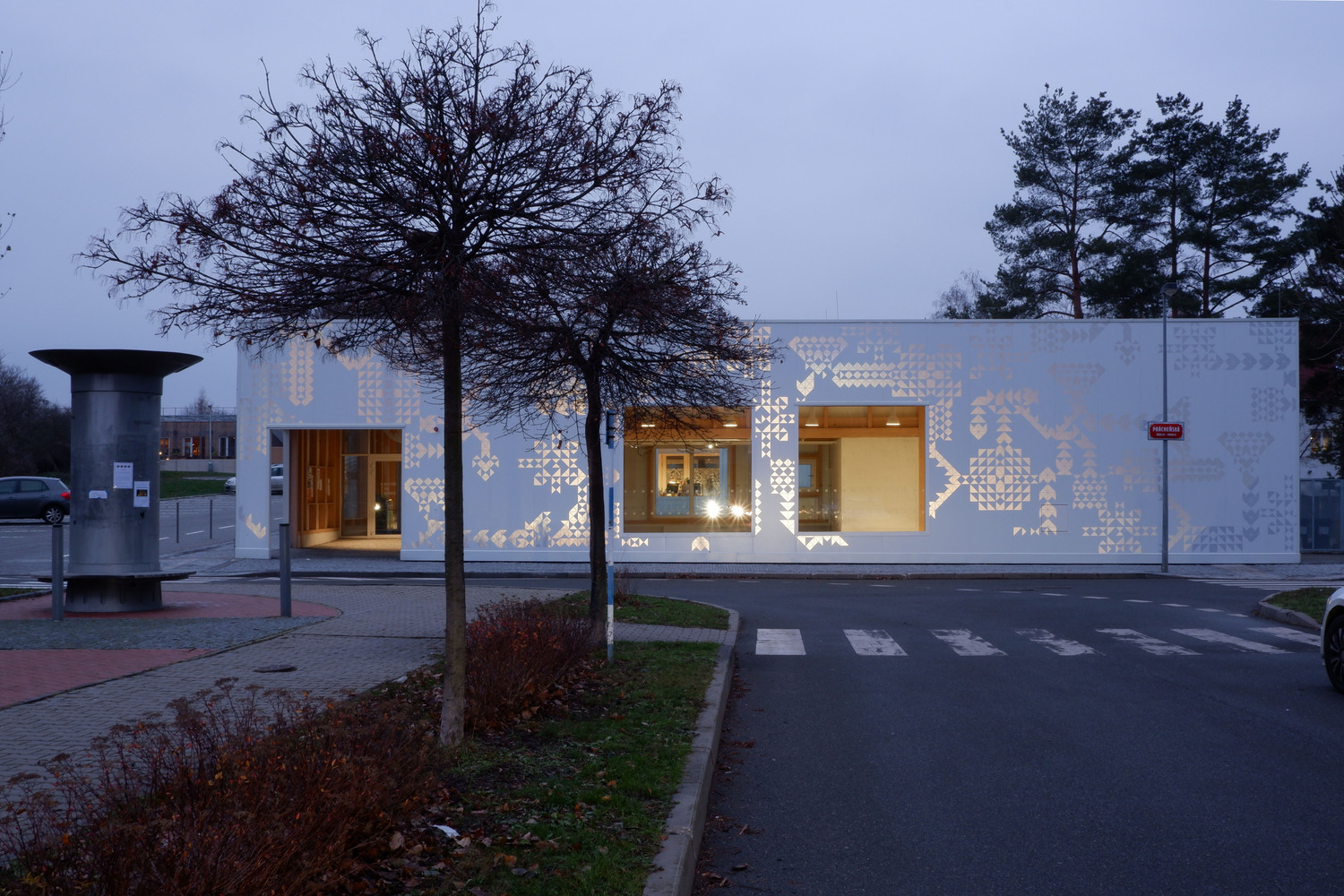The Layer House Prime Architecture
2017-08-11 22:00
© Andy Hwang
(黄德华


架构师提供的文本描述。我们被任命在首尔附近的永城设计一套4卧室的房子。这位客户此前曾住在附近的“高层”开发项目中,热衷于住在为孩子们提供更多空间的房子里。
Text description provided by the architects. We were appointed to design a 4 bedroom house in Yong-in near Seoul. The client had previously lived in a nearby ‘high-rise’ development, and keen to live in a house that providing more space for his children.


通过我们的设计,我们想解决家庭成员之间缺乏互动的问题。人们在房间里花更多的时间看电视或工作,这一动态并不是我们客户的家庭特有的,而是更多地反映了现代家庭的生活。这导致家庭内部缺乏沟通和分享。
Through our design we wanted to address the lack of interaction present between the family members. The dynamic of people spending more time isolated in their rooms watching TV or working say, was not specific to our Client’s family, but becoming more reflective of modern family living. This leads to a lack of communication and sharing within a family.
© Andy Hwang
(黄德华


我们的设计意图是创造一所房子,为家庭提供独立的空间,并将重点放在共同的区域上。流通空间将提供这一概念的基础,因为这些区域是所有成员使用的“独立房间”。
Our design intention was to create a house that provided the family with independent space, combined with a strong focus on shared areas. The circulation space would provide the basis of this concept as these areas are used by all members of the house to access the ‘independent rooms’.
Ground Floor Plan


1st Floor Plan
一楼图则


流通空间提供了一个传统的走廊,但也成为客厅,餐厅,厨房和书房,没有墙壁或隔断的地区。在这些区域之间,我们放置了提供4间卧室的“独立盒子”。为了进入这些房间,用户首先必须通过开放的规划、流通和居住区域。
The circulation space provided a traditional corridor but also became the living room, dining room, kitchen and study, with no walls or partitions dividing the areas. In between these areas, we positioned the ‘independent boxes’ which provided the 4 bedrooms. In order to access these rooms a user first has to pass through the open plan circulation and living areas.
© Andy Hwang
(黄德华


在重视大面积流通-生活区和所需卧室数量-的同时,考虑到我们在建筑体积方面受到的场地限制,这为实现这一目标提供了一个挑战。
In placing importance on having large circulation a living areas, and the number of required bedrooms, it provided a challenge to achieve this given the site constraints we had with regard to the volume of the building.




为了克服这一挑战,我们在整个房子里创建了许多不同楼层的“层”。实际上,“独立房间”变成了循环区周围的堆放箱,主要是通过一系列的步骤进入的。整个建筑总共有8个不同的楼层,这就把这个项目命名为“层屋”。这种分层方式提供了一种独特的内部布局,进一步有助于从私人独立房间中确定开放式的居住区域,所有这些都是由构成住宅核心的连续流通区域连接在一起的。
To overcome this challenge, we created a number of ‘layers’ of differing floor levels throughout the house. The ‘independent rooms’ in effect became stacked boxes around the circulation area and in the main, all accessed by a serious of steps. In total there are 8 different floor levels throughout the building, which gave name to the project as the ‘Layer House’. This layered approach provided a unique internal layout which further helped identify the open plan living areas from the private independent rooms, all linked together by the continuous circulation area which formed the core of the house.
© Andy Hwang
(黄德华


外黑粘土砖,这是更广泛的使用在韩国的房子,是使用在高地,那里的流通和生活区是内部。主字体正面采用图案堆砌的砖块,将自然光线引入主客厅,再加上地板到天花板的玻璃,通向内部庭院。在其他地方,私人独立房间的立面上涂了一层白色的灰泥,小方窗为这些房间提供了光线。
Externally black clay bricks, which are more widely used in Korean houses, are used on the elevations where the circulation and living areas are internally. Patterned stacked bricks were used on the main font façade to bring in natural light to the main living room combined with floor to ceiling glass leading to the internal courtyard. Elsewhere a white stucco finish was applied on the elevations where the private independent rooms are positioned, with small square windows providing light to these rooms.
© Andy Hwang
(黄德华


上层由二次起居室、家庭卧室、家庭图书馆和家庭音乐室组成,完全以家庭为导向,而底层则更有吸引力。这创造了相互作用的等级,底层试图与家庭成员之间的周围和上层进行互动。
Upper floors consists of secondary living room, family bedrooms, family library and family music room to be completely family oriented space, while the ground floor is left more inviting to surrounding. This created the hierarchy of interaction where ground floor is trying to interact family with surrounding and upper floors between the family members.
© Andy Hwang
(黄德华




















































































Architects Prime Architecture
Location South Korea
Design Team Jin Kim, Youngwoo Suh, B Kim, Thomas Tighe
Area 219.0 m2
Project Year 2016
Photographs Andy Hwang
Category Houses
Manufacturers Loading...
























